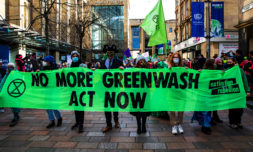Through fear of being plastered with the label ‘greenwasher,’ companies are withholding details of their climate targets, progress, and even sustainable milestones. This burgeoning issue is being called ‘greenhushing.’
Exposing companies for greenwashing tactics is supposed to bring about increased transparency, but for some, the mere possibility of being tarred with this brush is enough to avoid all communication on anything related to sustainability.
We’ve seen countless times in recent years how baseless green claims can draw public outrage and scrutiny on social media, not to mention lawsuits – such as those filed against Whole Foods, Tlou Energy, Kroger, and H&M.
In the age of conscious consumerism, brands need to at least appear socially responsible to garner favour with younger generations as we approach critical climate deadlines. That being said, faux moves which aim to mislead consumers or overinflate a company’s ecological progress are never well received.
The scope of PR fallout is usually attributable to how big an offender the brand is, or its parent industry is, but any case can be costly if environmental groups catch wind. Typical offenders we cover monthly on Thred are usually traced back to energy, fast food, fashion, or cosmetics.
Faced with the threat of tarnished reputations and legal action, many businesses are opting not to mention sustainability or climate targets at all. Even if intentions are pure and targets are plausible, many believe the potential pitfall of being labelled ‘greenwasher’ significantly outweighs any upside.





















